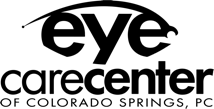Contact lenses are a great alternative to glasses you can wear almost anywhere. If you have an eye exam soon, you may wonder if you should wear your lenses to the appointment.
Wearing your contact lenses to your eye exam depends on the type of exam you’re receiving. You shouldn’t wear your lenses to a comprehensive eye exam, but you should if you have a contact lens exam or follow-up.
While you can always bring your glasses to be safe, it’s good to know when you should bring your contact lenses and when you shouldn’t.
Contact Lens Use Depends on the Eye Exam
Wearing your contact lenses to your eye exam depends on the type you’re receiving. Generally, there are 2 types of eye exams: a comprehensive eye exam and a contact lens exam.
You have regular comprehensive eye exams on a schedule recommended by your optometrist, as well as contact lens exams when you get contact lenses.
What Happens During a Comprehensive Eye Exam?
An eye exam is a routine assessment of your eyesight and overall eye health. During the exam, your optometrist performs various tests to evaluate your vision and identify potential eye problems.
Eye exams are important for maintaining good eye health, and you should have them every 1–2 years, especially for patients with a family history of eye disease or other risk factors.
Your eye exam includes several tests, like:
- Preliminary tests such as depth perception and pupil response
- Visual acuity
- Refraction
- Eye health evaluation
If your eye doctor identifies any issues, they’ll recommend a customized treatment plan to help address the eye problem affecting your vision.
What Happens During a Contact Lens Exam?
Contact lenses are a popular choice for patients who want clear vision without the hassle of glasses. A contact lens exam and fitting are crucial to make sure contact lenses fit comfortably and provide clear vision.
During the exam, your eye doctor will perform various tests to assess your eye health and determine your prescription. After receiving your lenses, your eye doctor will book follow-up appointments to check if your contacts feel comfortable.
The contact lens process includes 3 important steps:
- Your eye exam: Your eye exam is where your optometrist determines if you can wear contact lenses. They’ll carefully assess your eyes and vision and learn more about your medical history.
- Your fitting: Your contact lens fitting helps make sure your lenses feel comfortable. Your optometrist measures your eye to determine the size of lenses you need.
- Your trial period: This is the time you can test out your contact lenses. You may notice discomfort, so your optometrist will schedule multiple follow-up appointments. If something doesn’t feel right, they’ll work with you until you can enjoy clear, comfortable vision.
When Should You Wear Your Contacts?
If you’re curious about when to wear your contact lenses, you can follow a simple rule: wear your lenses if the appointment is about your contacts.
Here’s what you can do depending on the exam:
- Regular comprehensive eye exam: Remove your contact lenses a few hours before your exam and bring them in their case.
- Contact lens exam or follow-up: You won’t have your lenses for the first exam, but bring your contacts to follow-up appointments or exams to update your prescription.
How Often Do You Need an Eye Exam?
Whether you wear contact lenses or not, regular eye exams are essential for your eye health and vision. Eye exam frequency differs depending on your age and eye health.
According to the American Optometric Association, patients 18–64 should have an eye exam at least every 2 years if they’re not at risk of eye conditions. Adults over 65 should have an annual eye exam as the risk of eye diseases increases with time. If you have a medical condition that affects your eye health, like diabetes, you will likely have more frequent eye exams.
Your optometrist will recommend an eye exam schedule based on your eye health and risk of future complications.
Book Your Next Eye Exam
Contact lenses have many benefits, but you can’t wear them constantly. Wearing contact lenses to your eye exam is situational, so make sure you know what’s happening during your appointment. Bring your glasses if it’s a regular eye exam, and wear your contacts if it’s a contact lens exam.
Contact Eye Care Center of Colorado Springs when it’s time for your next eye exam.


